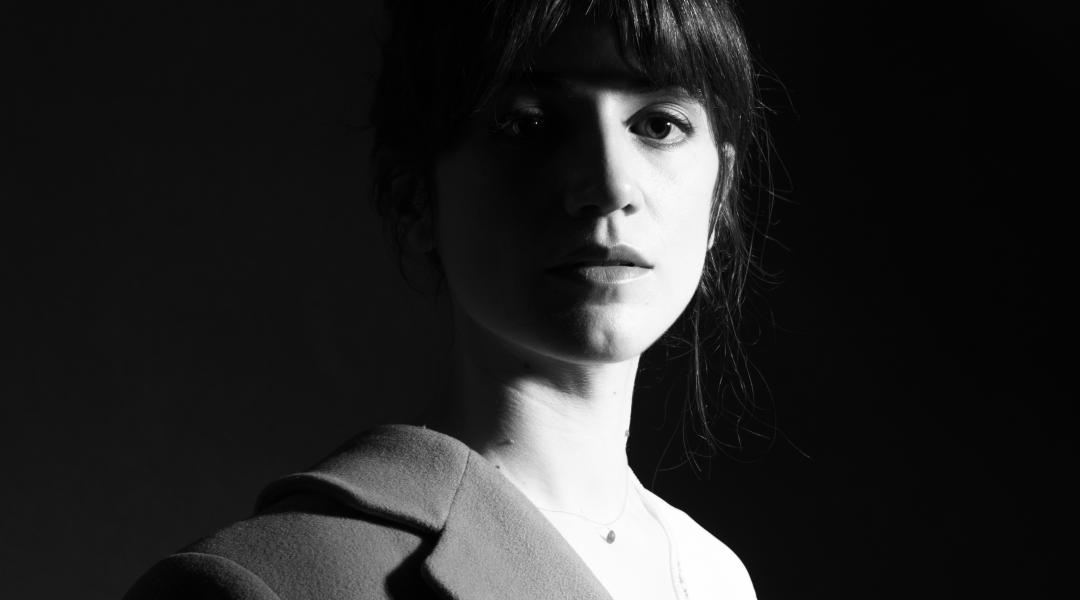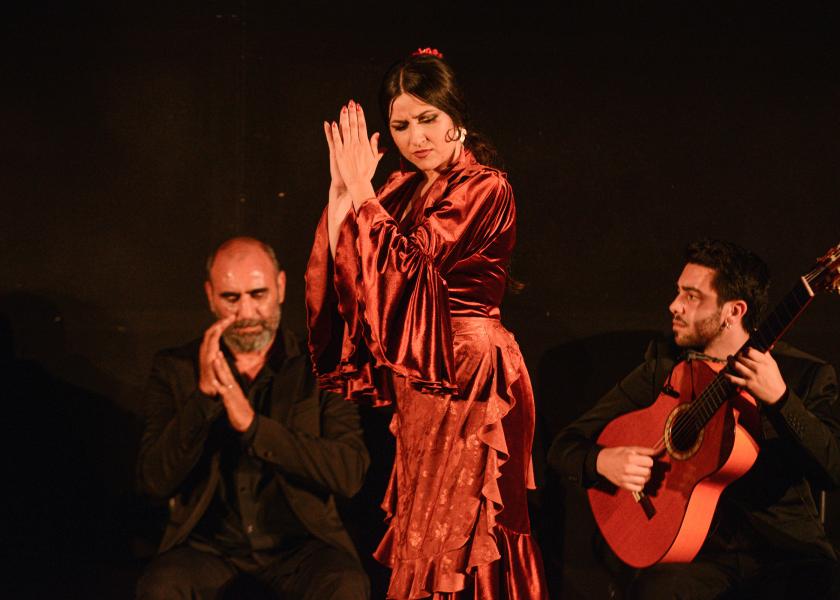María Rodés
When Sensibility Becomes Emphatic

Catalan singer-songwriter María Rodés (Barcelona, 1986) has been in music for over a decade. In those ten years she’s published five albums, composed the soundtracks of three films, and she’s written a book. In recent weeks, she’s become particularly popular by voicing this summer’s ad by a popular beer brand, advocating the preservation of ocean life.
Spontaneous and affable, Rodés openly admits that “television, and particularly TV ads, have a much greater reach than specialised music media.” But, credit where credit is due—after years of operating in the deepest underground of Spanish music, it’s quite nice to suddenly be on everyone’s lips.
Her collaborations with Jorge Drexler, Coque Malla and Nacho Vegas have brought her closer to an audience that perhaps was aware of her, but didn’t follow her. Although, undoubtedly, if we had to choose a partner in crime for Rodés, it would definitely be Ramón Quintana, better known as Spanish indie music stalwart The New Raemon, who sings on two tracks on her most recent album. “We’re neighbours, for starters,” she says about their friendship. “We’re both from Maresme, and he released my first record on his label, Cydonia. We’re good friends and I love his songs and his voice. I think our voices go together really well.”
There are nine years between that first album and her latest, Eclíptica (Satélite K, 2018). The latter’s musical title refers to the process of seeing the Sun’s rotation from Earth over the course of a year. The concept gives away an interest in interstellar phenomena and mysticism: “I’ve always been curious about spirituality referring to the search of the inner self, although I wouldn’t dare to say that I ‘m a mystical person.” She continues: “There are places and people that awaken that part of my personality, but it’s not a constant in my life. A few examples are my great-grandfather Lluís Rodés, an astronomer whom I dedicated my last album to, and the area of the river Ebro, where he lived, directing the Ebro Observatory during the Civil War.”
“I want to go back to singing songs about love and the lack thereof, maybe some between witches and devils – why not?”
Throughout her career, her sound, full of ephemeral atmospheres and resounding sensibilities, has been reinforced as well as broadened stylistically. Proof of this is her 2015 album María canta copla, on which she pays homage to the genre. Now, she confesses to being interested in Peruvian psychedelic cumbia: “When I'm down, I listen to a compilation album called The Roots of Chicha: Psychedelic Cumbias from Peru – that automatically brightens my mood.”
But Rodés is not only interested in sound. Paganism is starting to become a prominent source of inspiration and object of study. Because the true icons of this particular set of beliefs are witches. So does she believe that the combination of women with magical powers and a palpable mysticism spawned feminism, centuries ago? “There are several theories. I suppose sorceresses and witches could be seen as part of the feminist struggle, even if feminism did not become an organised movement until the middle of the 20th century. What is clear is that feminism has long vindicated the figure of the witch. For example, one of the collectives I find most inspiring is W.I.T.C.H., a feminist movement that emerged in the sixties and said ‘If you are a woman and you dare to look inside yourself, you are a witch. Create your own rules. You are free and beautiful. You can be invisible or visible about how you choose to make your witch’s face known’.”
Above all, what she’s learned about the music industry over all these years is clear: “I only know that I don’t know anything.” With regards to her future record, she still doesn’t dare to reveal the lines she’ll be working along, nor what sound she’ll be pursuing, but she does have her “creative drive”: “At the moment, witches and their multiple connotations are a good excuse to carry out a personal exploration. I haven’t yet decided the style of the songs – that process is going on right now. I want to go back to singing songs about love and the lack thereof, maybe some between witches and devils – why not?” However, her wish for 2020 is crystal clear: “May many good and very few bad things happen to me.”


